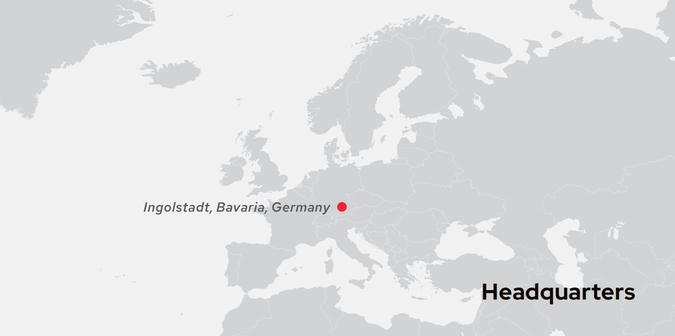Automotive giant Audi is creating innovative digital services for its customers by allying the tactical exploitation of open-source technology to a DevOps-inspired change program.
Sebastian Kister, Product Team Lead for the Kubernetes Competence Centre at Audi AG, says his organization has used Red Hat OpenShift, an enterprise-ready Kubernetes container platform, to build a scalable environment for cloud-based software development.
Rather than relying on a traditional ‘plan-build-run’ organization, Audi, which is part of the Volkswagen Group, has created a technological and cultural shift that allows application developer teams to deliver hardened and secured containers flexibly that can be used to deliver digital services for the company’s customers. Says Kister:
We have successful and happy users sharing their knowledge cross-project, cross-brand, and even cross-enterprise in communities – and they're building great products. Success comes from adapting a mindset that leads to new ways of working together and thinking as one big enterprise.
This joined-up approach is seen as critical to helping Audi deal with the fast pace of change in the automotive sector. Rather than three-to-five-year product cycles that predominated in the classical car-engineering ecosystem, car manufacturers face a world of disruptive innovation and fast-changing customer expectations. Across key areas such as autonomous driving and sustainability, according to Kister, Audi must deliver new digital experiences to drivers quickly and effectively:
We want to be the most progressive premium brand with the best customer experiences and fascinating customer innovations. In today's world, the capability to adapt quickly to new things has evolved to become a core competence that applies to people as well as companies.
Competence
Kister’s role within the IT department is to run Audi’s Kubernetes Competence Center. This center contains a group of technical specialists who provide a platform, known as Kubika O, that is used to create a range of robust and reliable tools for product teams across the business to self-serve. The aim is to provide a means to allow product teams to deploy containerised workloads on a cloud-agnostic platform, he explains:
We focus on the mission to be cloud-provider independent and to create a cost-effective multi-tenant platform. Volkswagen is a huge group and the platforms have different use cases. It’s really important we’re cloud-agnostic across such a vast environment. So, we strategically position our platform as multi-cloud and multi-tenant, focusing not on a huge layer of managed – or let's say unmanageable – services on top, but rather focusing on security and runtime and nothing else.

There are three key layers to Kubika O. The bottom layer includes “foundation services” based on the AWS and Azure public clouds. On top of the foundation layer, Audi runs Red Hat OpenShift 4.9. OpenShift provides a stable, scalable environment for the product development processes that the business undertakes on its cloud platforms. The top layer includes a series of components – around security, automation and policies – that helps Audi’s product teams create secure digital services for the company’s customers. Kister says this three-layered approach allows Audi’s staff to work effectively:
Our success is all about passionate people. But now we have some great technologies to enable our people to follow their passions. These products are compliant, secure and reliable. Because if they don't have these technologies, they will not have success. They need secure, reliable runtimes to create the products.
The implementation of the technology is in many ways the most straightforward part of the process, counsels Kister. Digital leaders who want to transform an organization to help development teams build valuable digital services for customers must focus on cultural change. So, as well as delivering a solid and secure technological foundation, Audi is using DevOps to ensure developer and business teams can deliver hardened and secured containers. While the term DevOps is widely applied, Kister argues that many companies still struggle to define a common language between departments within organizations:
We want to get rid of those silos. We want to break those silos and focus on the strong professional service organization – consulting each project individually and teaching them standards as well.
Audi’s key tactic for the successful exploitation of DevOps techniques is the enablement of people, with a development culture focused on sharing knowledge. This collaborative approach is a big break from the tactics often applied in other companies, Kister believes:
Some 'old world' managers will be screaming, ‘Oh, no. You can't do that. This does not scale.’ Well, it does scale – and way better. Because in a short time, you will have an insanely strong community of passionate people, instead of an army of process-following mindless zombies creating their own shadow IT.
Work in progress
Kister said his organization’s approach to development remains a work in progress. To ensure Audi’s use of Kubernetes remains fresh, he created a partnership approach with the Cloud Native Computing Foundation in 2019 that allows people in his team to engage with the wider open-source community:
This partnership is not about influencing the Kubernetes community but rather about knowing where they're heading. We want to be on the forefront, to know where the trends are going and to react purposefully and in time – and not follow years after something has been established.
Kister argues that Audi’s engagement with the open-source community is pioneering, different to many enterprises today that still tend to avoid working at the bleeding edge and instead invest money in established technological areas. As well as engaging with the external community, Kister created an internal programme for the joined-up use of OpenShift in 2020:
That’s about best-practice sharing. It's not a top-down management thing. It's about people sharing their experiences with an expert group of platform owners and engineers. That does have great impact. We influence standardisation within group IT. And we scale practices within the enablement layer between the platform teams.
As a result of this joined-up approach, Kister said Audi benefits from a strong community across platform engineers and owners, and also between the people who use Kubernetes every day:
They help each other. It all makes the technology scale better because people involved in the projects can help each other. They don't need to write 20,000 tickets to your platform team, which is fairly small – and that kind of reliance on technical specialists mean your approach will not scale. But if you enable as many people as you can, your technology scales organically between them.









